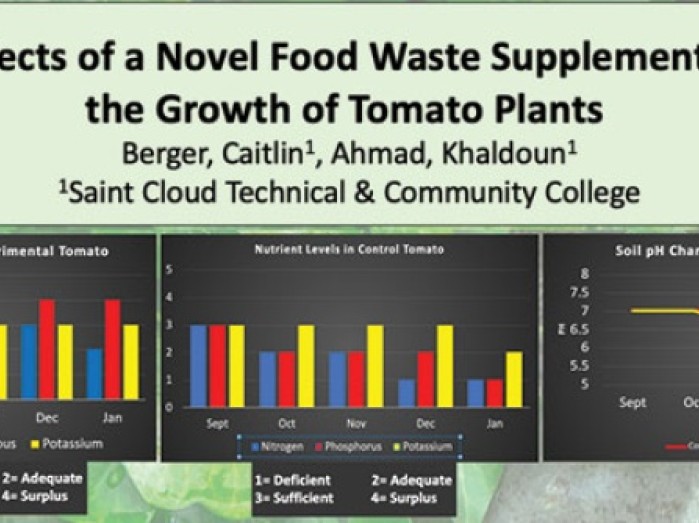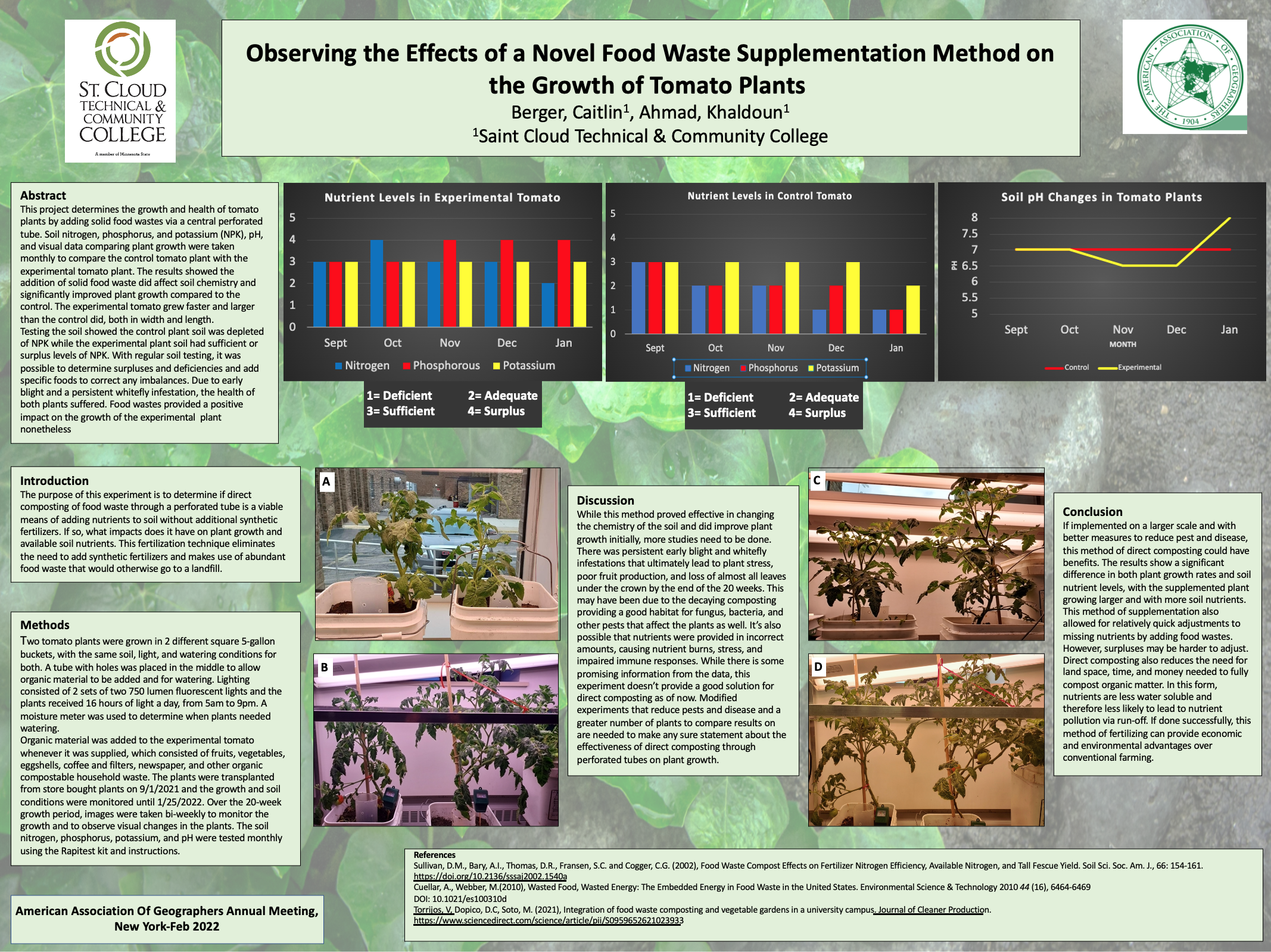
By Kate Wallace
Environmental Science student CJ Berger presented a research project at the American Association of Geography Annual meeting in New York on Friday, Feb. 25.
The project was titled “Observing the Effects of Novel Food Waste Supplementation Method on the Growth of Tomato Plants” and determined if directly composting food waste through a perforated tube is a viable means of adding nutrients to soil without additional synthetic fertilizers. This technique would have a twofold effect: eliminate the need for synthetic fertilizers and make use of the food waste that would end up in a landfill.

CJ grew two tomato plants under the same conditions, using one as a control and other with the compost fertilizing method described above. Despite some pest infestations and early blight, the experimental tomato grew at a faster rate and nutrient levels were higher than those in the control tomato at the end of the experiment. Both plants started at the same level.
The conclusion of the study was hopeful for implementation on a larger scale, as long as measures were in place to reduce pest disease. The difference in growth rate and nutrient levels is just one benefit: direct composting also reduces land use, time, and money to fully compost before applying. Nutrients are also less water soluble and less likely to run-off.
“If done successfully, this method of fertilizing can provide economic and environmental advantages over conventional farming,” the study concluded.
Envrionmental Science instructor Khaldoun Ahmad is happy to work with students who want to take on a research project for presentation. There are several benefits to research projects:
- Learn and provide knowledge and feedback for the presenters and students doing the research project
- Allows for networking - get a job, scholarship, or get involved.
- Gread addition to a resume
Anyone who's interested in learning more about research opportunities can get a hold of Khaldoun Ahmad at khaldoun.ahmad@sctcc.edu.
